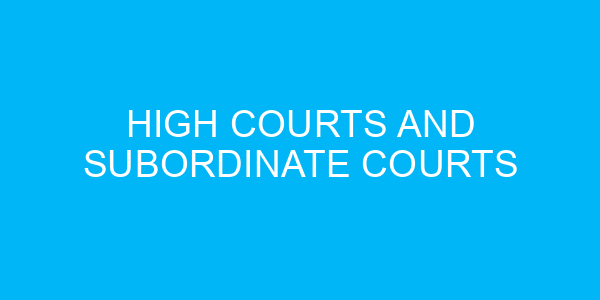41. Which of the following statements is true about the appellate jurisdiction of High Courts?
a) High Courts can only hear appeals from subordinate courts
b) High Courts can hear appeals from lower courts as well as tribunals
c) High Courts can hear appeals only on questions of law
d) High Courts can hear appeals on both questions of fact and law
42. The decisions of High Courts on questions of law are binding on:
a) Lower courts within the state
b) Lower courts in other states
c) Subordinate courts within the state
d) All courts within the country
43. Which one of the following statements is true about the powers of High Courts?
a) They can issue writs to enforce fundamental rights
b) They can issue writs to enforce legal rights
c) They can issue writs to enforce social rights
d) They can issue writs to enforce economic rights
44. The power of judicial review allows High Courts to:
a) Interpret the Constitution
b) Review the decisions of subordinate courts and tribunals
c) Strike down laws inconsistent with the Constitution
d) All of the above
45. Which one of the following is not a writ issued by the High Court?
a) Writ of Habeas Corpus
b) Writ of Mandamus
c) Writ of Certiorari
d) Writ of Prohibition



